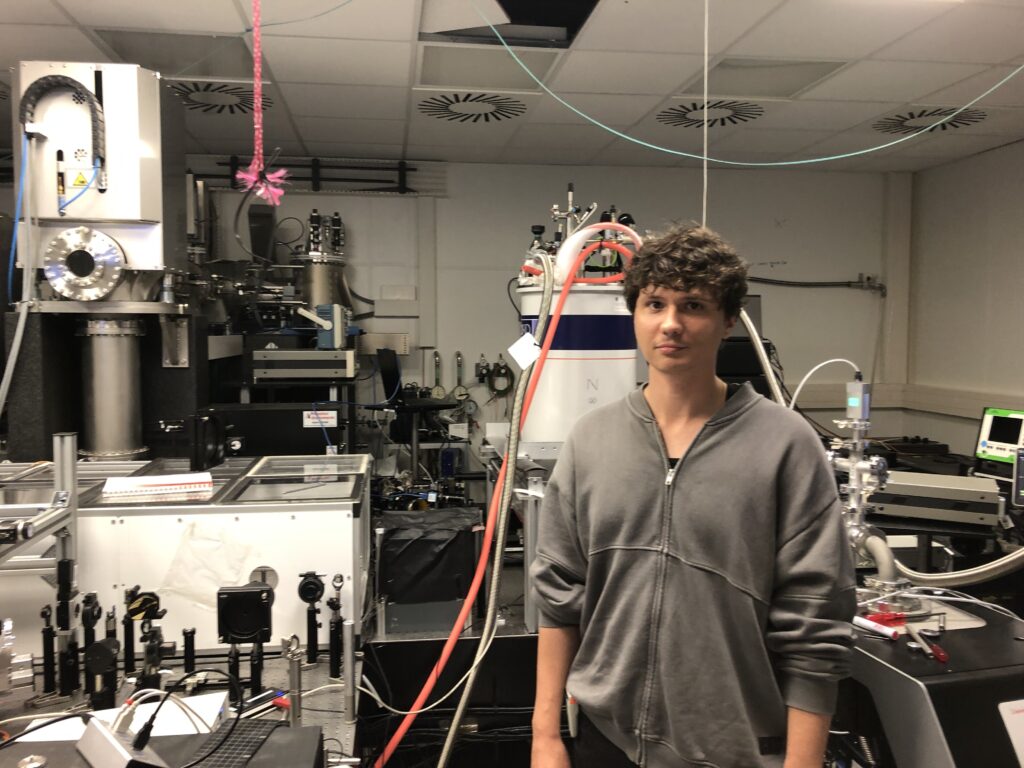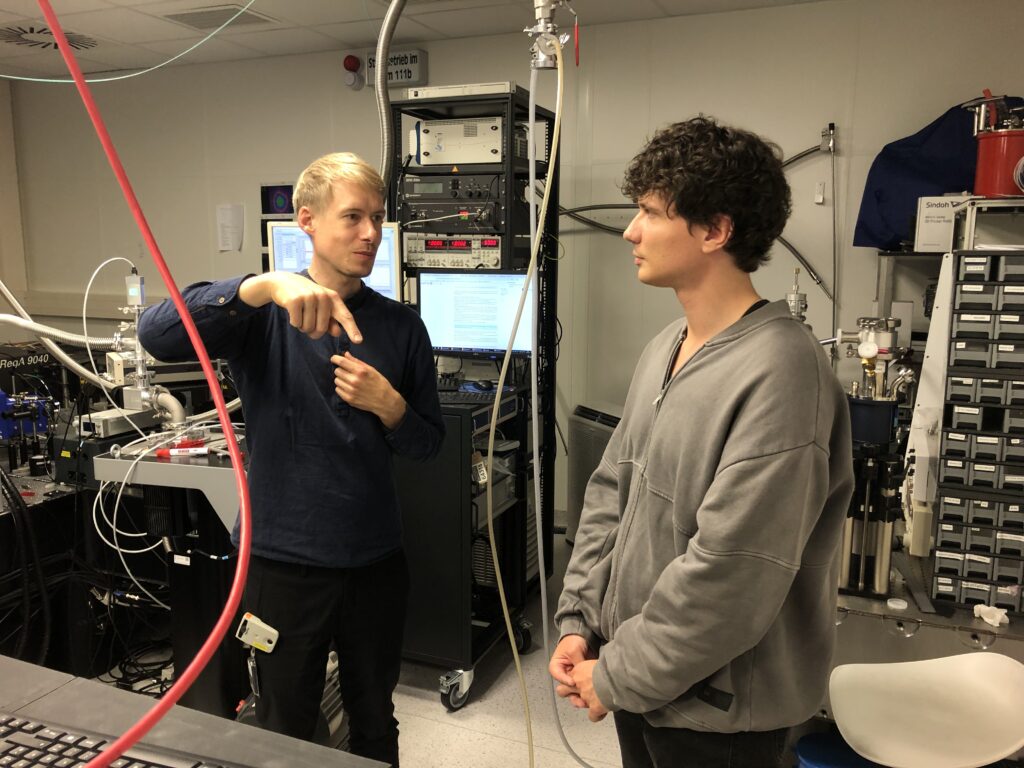The project NEPHEWS supports the exchange of knowledge through internships of early-stage researchers at European user facilities.
In September 2025, PhD student Nazar Shvachko completed his research stay at the ELBE Center for High-Power Radiation Sources at the Helmholtz-Zentrum Dresden-Rossendorf in Germany.

Nazar comes from the G. V. Kurdyumov Institute for Metal Physics of the National Academy of Sciences of Ukraine. His background is the development and study of functional materials for sensor electronics.
At the ELBE facility, Nazar’s visit overlapped with two user experiments that involved high-field high-repetition-rate terahertz (THz) radiation.
“During my stay at the ELBE/TELBE facility (HZDR, Dresden) I had the opportunity to closely observe complex experiments with the superconducting linac and intense terahertz sources. These experiments demanded precise synchronization of femtosecond electron bunches, careful radiation safety, and detailed coordination between accelerator operators and users. Watching these challenging procedures gave me a much deeper appreciation of how large-scale facilities work in practice, from beam preparation to signal detection.
From this experience I learned how nonlinear THz spectroscopy is performed in real time, how scientists extract information about collective modes in superconductors and magnets, and why beam parameters such as emittance and stability are so critical. Beyond the technical insights, I also gained a sense of how demanding – but rewarding – these experiments are, and how collaboration between different experts makes it possible to reach meaningful results.”

The training helped Nazar
Nazar concluded his stay with an optimistic note for the future:
“This training was an important milestone on my way to becoming an independent researcher. I’m deeply grateful for the opportunity to obtain hands-on experience in real experiments that involved the use of THz radiation.”
The NEPHEWS Project is committed to supporting the next generation of researchers with access to state-of-the-art user facilities across Europe.